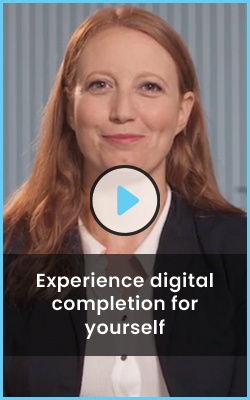Banking News: Older Generations Joining the Digital Trend
- Digital banking is now used by a wider range of age groups, including elders: The push towards contactless banking has been and will continue to alter the typical way we are used to. Even the older generations have accepted the new ways of banking and started going digital.
Specifically, Bank of America has noticed a rise in their online and mobile customer logins since the pandemic.
Bloomberg News reported that in April, 23% of these logins were seniors and boomers. These older customers were also about 20% of the customers who deposited checks on their phones for the first time.
With older generations being at a higher risk for contracting the virus, it would make sense for them to turn to digital banking, rather than in-person transactions with face-to-face interactions, handshakes, etc. Furthermore, 25% of people surveyed by Boston Consulting Group stated that they will either visit bank branches less or not at all once the crisis is over. If people do not feel safe physically going, digital transformation is really the only way to keep these customers.
President of Goldman Sachs Group Inc. John Waldrom told BCG that “the crisis is accelerating the trend towards digital banking.” And since the increasing push towards digital banking is stronger than ever, customers of all ages must learn to adapt.
Auto Finance News: New Platforms Setting a New Precedent in Auto Finance
- Digital automotive platform partners with fintech to ease the online vehicle finance experience: Digital motors, an online automotive retail platform, is working with eLend Solutions, a fintech that connects customers, lenders, and dealers in the car-buying industry. The purpose of this partnership is to make a smoother online purchasing and finance process for both customers and dealerships.
Customers have been somewhat hesitant to buy vehicles online because of the inconsistency between “estimated” online payment quoting and customer or vehicle “qualified” payment quoting. However, eLend Chief Executive Pete MacInnis told
Auto Fin Journal he is confident they solve this problem with credit and finance checks, and by pairing customers with the best available lenders.
Plus, social distancing has made remote lenders a necessity in the car-buying process. As a result, eLend has experienced a 10% increase in financing applications since March and Digital Motors has had a 100% increase in its customer base. The mutually beneficial partnership makes buying, leasing, or financing vehicles just like shopping on Amazon - easy, effortless, and efficient.
The platform developed from this partnership has had a strong positive response and if the growth continues, it will make its way to the European market.
- A new e-signature platform called eSign Anything aids customer-auto dealer interactions: RouteOne has picked up on the trends in which less deliveries are occurring at dealerships, along with less paper transactions.
As a result, RouteOne created a
new digital platform called
eSign Anything, a platform where dealers can electronically send deal documents to customers to be digitally signed and returned. This makes the e-signing process a better, more secure, and easily-managed customer experience.
eSignature deal documents include: RouteOne-generated credit applications and e-contracts, RouteOne and MaximTrak-generated aftermarket product forms, and dealer-uploaded documents. Also, all e-signing fees are waived until September 1.
Although the crisis is slowly calming down, people still want low-contact processes. We have all experienced enormous changes, so platforms like eSign Anything are just one of the many ways industries are trying to adapt and further a positive customer experience.
Insurance News:
- As insurance carriers and agencies look towards updating their technology, the advantages greatly overpower the disadvantages: In both the short term and long, newer technologies bring more tools and business models to the table.
We are at a point in time where it is a “competitive disadvantage not to be looking at new technology”, according to Matt Foster, CEO of Duck Creek Technologies. However, companies are still hesitant to transform for two main reasons. First, such a big, powerful change is scary and comes with risks. Second, many organizations do not have an open application program interface (API), so they are limited in the technologies they can use.
Of course, any change comes with risk, and the greater the risk, the more rewarding the outcome. New technology helps insurance organizations make experiences as easy as Amazon’s, while also increasing sales, profits, and customer engagement. Carriers and agencies that do not go digital will struggle with speed, agility, and flexibility to participate in evolving distribution channels.
Fortunately, the industry’s workforce is in fact becoming younger, and thus more tech savvy. This makes employees better for recruiting, training, and retaining workers.
Additionally, COVID-19 has strengthened the need for the insurance industry to implement new digital ways. As a response to the pandemic, there have been
three noticeable trends:
- AI makes typical in-person tasks more customized and personal.
- Virtual experience is more dynamic.
- Since companies like Amazon and most restaurants started accepting digital payments, customers will expect it everywhere.
These trends, along with the sudden change in priorities of insurance companies, create a new criteria for “business as usual” in the insurance industry.



